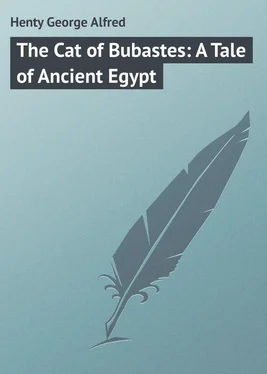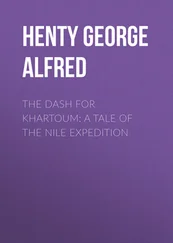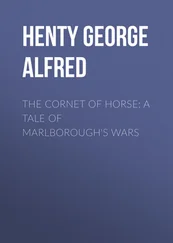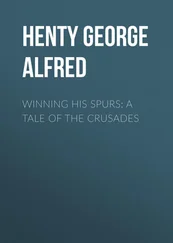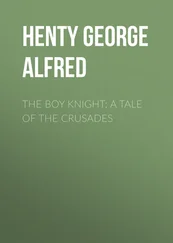George Henty - The Cat of Bubastes - A Tale of Ancient Egypt
Здесь есть возможность читать онлайн «George Henty - The Cat of Bubastes - A Tale of Ancient Egypt» — ознакомительный отрывок электронной книги совершенно бесплатно, а после прочтения отрывка купить полную версию. В некоторых случаях можно слушать аудио, скачать через торрент в формате fb2 и присутствует краткое содержание. Жанр: foreign_prose, на английском языке. Описание произведения, (предисловие) а так же отзывы посетителей доступны на портале библиотеки ЛибКат.
- Название:The Cat of Bubastes: A Tale of Ancient Egypt
- Автор:
- Жанр:
- Год:неизвестен
- ISBN:нет данных
- Рейтинг книги:5 / 5. Голосов: 1
-
Избранное:Добавить в избранное
- Отзывы:
-
Ваша оценка:
- 100
- 1
- 2
- 3
- 4
- 5
The Cat of Bubastes: A Tale of Ancient Egypt: краткое содержание, описание и аннотация
Предлагаем к чтению аннотацию, описание, краткое содержание или предисловие (зависит от того, что написал сам автор книги «The Cat of Bubastes: A Tale of Ancient Egypt»). Если вы не нашли необходимую информацию о книге — напишите в комментариях, мы постараемся отыскать её.
The Cat of Bubastes: A Tale of Ancient Egypt — читать онлайн ознакомительный отрывок
Ниже представлен текст книги, разбитый по страницам. Система сохранения места последней прочитанной страницы, позволяет с удобством читать онлайн бесплатно книгу «The Cat of Bubastes: A Tale of Ancient Egypt», без необходимости каждый раз заново искать на чём Вы остановились. Поставьте закладку, и сможете в любой момент перейти на страницу, на которой закончили чтение.
Интервал:
Закладка:
A shower of missiles flew through the air and fell among the ranks of the Egyptian footmen who had just arrived at the edge of the swamp. So terrible was the discharge that the Egyptians recoiled and, retreating halfway up the slope, where they would be beyond the reach of the Rebu, in turn discharged their arrows. The superiority of the Egyptian bowmen was at once manifest. They carried very powerful bows, and standing sideways drew them to the ear, just as the English archers did at Crecy, and therefore shot their arrows a vastly greater distance than did their opponents, who were accustomed to draw their bows only to the breast.
Scores of the Rebu fell at the first discharge, and as the storm of arrows continued, they, finding themselves powerless to damage the Egyptians at that distance, retired halfway up the side of the slope. Now from behind the lines of the Egyptian archers a column of men advanced a hundred abreast, each carrying a great fagot. Their object was evident: they were about to prepare a wide causeway across the marsh by which the chariots could pass. Again the Rebu advanced to the edge of the swamp and poured in their showers of arrows; but the Egyptians, covering themselves with the bundles of fagots they carried, suffered but little harm, while the Rebu were mown down by the arrows of the Egyptian archers shooting calmly and steadily beyond the range of their missiles.
As soon as the front rank of the Egyptian column reached the edge of the swampy ground the men of the front line laid down their fagots in a close row and then retired in the intervals between their comrades behind them. Each rank as it arrived at the edge did the same. Many fell beneath the arrows of the Rebu, but the operation went on steadily, the fagots being laid down two deep as the ground became more marshy, and the Rebu saw, with a feeling approaching dismay, the gradual but steady advance of a causeway two hundred yards wide across the swamp.
The king himself and his bravest captains, alighting from their chariots, went down among the footmen and urged them to stand firm, pointing out that every yard the causeway advanced their arrows inflicted more fatal damage among the men who were forming it. Their entreaties, however, were vain; the ground facing the causeway was already thickly incumbered with dead, and the hail of the Egyptian arrows was so fast and deadly that even the bravest shrank from withstanding it. At last even their leaders ceased to urge them, and the king gave the order for all to fall back beyond the range of the Egyptian arrows.
Some changes were made in the formation of the troops, and the best and most disciplined bands were placed facing the causeway so as to receive the charge of the Egyptian chariots. The two front lines were of spearmen, while on the higher ground behind them were placed archers whose orders were to shoot at the horses, and to pay no heed to those in the chariots; then came the chariots, four hundred in number. Behind these again was a deep line of spearmen; on the right and left extending to the wood and village were the main body of the army, who were to oppose the Egyptian footmen advancing across the swamp.
The completion of the last portion of the causeway cost the Egyptians heavily, for while they were exposed to the arrows of the Rebu archers these were now beyond the range of the Egyptians on the opposite crest. But at last the work was completed. Just as it was finished and the workmen had retired, the king leaped from his chariot, and, leading a body of a hundred men carrying blazing brands, dashed down the slope. As soon as they were seen the Egyptian archers ran forward and a storm of arrows was poured into the little band. Two-thirds of them fell ere they reached the causeway; the others applied their torches to the fagots.
The Egyptian footmen rushed across to extinguish the flames, while the Rebu poured down to repel them. A desperate fight ensued, but the bravery of the Rebu prevailed, and the Egyptians were driven back. Their attack, however, had answered its purpose, for in the struggle the fagots had been trodden deeper into the mire, and the fire was extinguished. The Rebu now went back to their first position and waited the attack which they were powerless to avert. It was upward of an hour before it began, then the long line of Egyptian footmen opened, and their chariots were seen fifty abreast, then with a mighty shout the whole army advanced down the slope. The Rebu replied with their warcry.
At full speed the Egyptian chariots dashed down the declivity to the causeway. This was the signal for the Rebu archers to draw their bows, and in an instant confusion was spread among the first line of chariots. The horses wounded by the missiles plunged madly. Many, stepping between the fagots, fell. For a moment the advance was checked, but the Egyptian footmen, entering the swamp waist-deep, opened such a terrible fire with their arrows that the front line of the Rebu were forced to fall back, and the aim of their archers became wild and uncertain.
In vain the king endeavored to steady them. While he was doing so, the first of the Egyptian chariots had already made their way across the causeway, and behind them the others poured on in an unbroken column. Then through the broken lines of spearmen the Rebu chariots dashed down upon them, followed by the host of spearmen. The king’s object was to arrest the first onslaught of the Egyptians, to overwhelm the leaders, and prevent the mass behind from emerging from the crowded causeway.
The shock was terrible. Horses and chariots rolled over in wild confusion, javelins were hurled, bows twanged, and the shouts of the combatants and the cries of the wounded as they fell beneath the feet of the struggling horses created a terrible din. Light and active, the Rebu footmen mingled in the fray, diving under the bellies of the Egyptian horses, and inflicting vital stabs with their long knives or engaging in hand-to-hand conflicts with the dismounted Egyptians. Amuba had charged down with the rest of the chariots. He was stationed in the second line, immediately behind his father; and his charioteer, mindful of the orders he had received, strove, in spite of the angry orders of the lad, to keep the chariot stationary; but the horses, accustomed to maneuver in line, were not to be restrained, and in spite of their driver’s efforts charged down the slope with the rest.
Amuba, who had hunted the lion and leopard, retained his coolness, and discharged his arrows among the Egyptians with steady aim. For a time the contest was doubtful. The Egyptian chariots crowded on the causeway were unable to move forward, and in many places their weight forced the fagots so deep in the mire that the vehicles were immovable. Meanwhile, along the swamp on both sides a terrible contest was going on. The Egyptians, covered by the fire of their arrows, succeeded in making their way across the swamp, but here they were met by the Rebu spearmen, and the fight raged along the whole line.
Then two thousand chosen men, the bodyguard of the Egyptian king, made their way across the swamp close to the causeway, while at the same time there was a movement among the densely packed vehicles. A tremendous impulse was given to them from behind: some were pressed off into the swamp, some were overthrown or trampled under foot, some were swept forward on to the firm ground beyond, and thus a mass of the heaviest chariots drawn by the most powerful horses forced their way across the causeway over all obstacles.
In their midst was the King of Egypt himself, the great Thotmes.
The weight and impetus of the mass of horses and chariots pressed all before it up the hill. This gave to the chariots which came on behind room to open to the right and left. The king’s bodyguard shook the solid formation of the Rebu spearmen with their thick flights of arrows, and the chariots then dashed in among them. The Rebu fought with the valor of their race. The Egyptians who first charged among them fell pierced with their arrows, while their horses were stabbed in innumerable places. But as the stream of chariots poured over without a check, and charged in sections upon them, bursting their way through the mass of footmen by the force and fury with which they charged, the infantry became broken up into groups, each fighting doggedly and desperately.
Читать дальшеИнтервал:
Закладка:
Похожие книги на «The Cat of Bubastes: A Tale of Ancient Egypt»
Представляем Вашему вниманию похожие книги на «The Cat of Bubastes: A Tale of Ancient Egypt» списком для выбора. Мы отобрали схожую по названию и смыслу литературу в надежде предоставить читателям больше вариантов отыскать новые, интересные, ещё непрочитанные произведения.
Обсуждение, отзывы о книге «The Cat of Bubastes: A Tale of Ancient Egypt» и просто собственные мнения читателей. Оставьте ваши комментарии, напишите, что Вы думаете о произведении, его смысле или главных героях. Укажите что конкретно понравилось, а что нет, и почему Вы так считаете.
